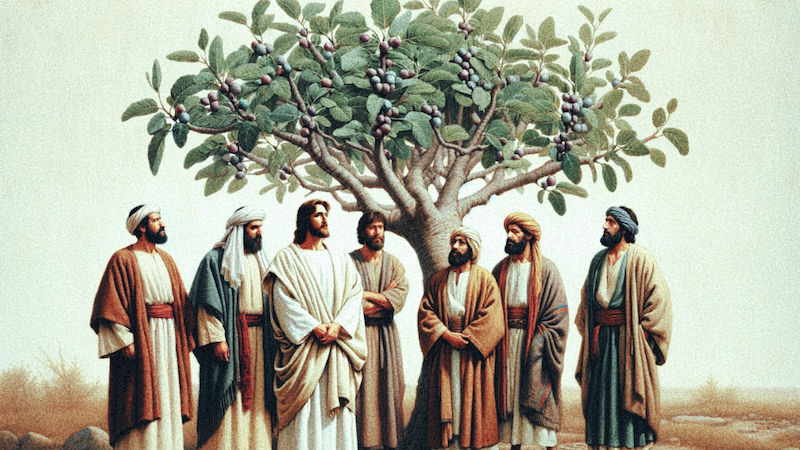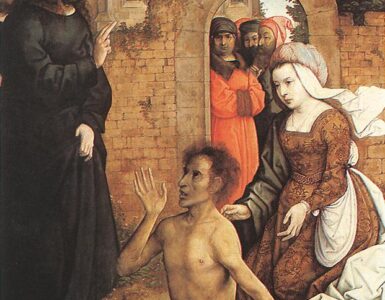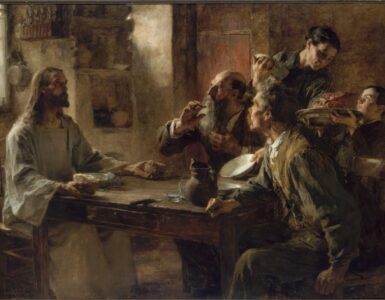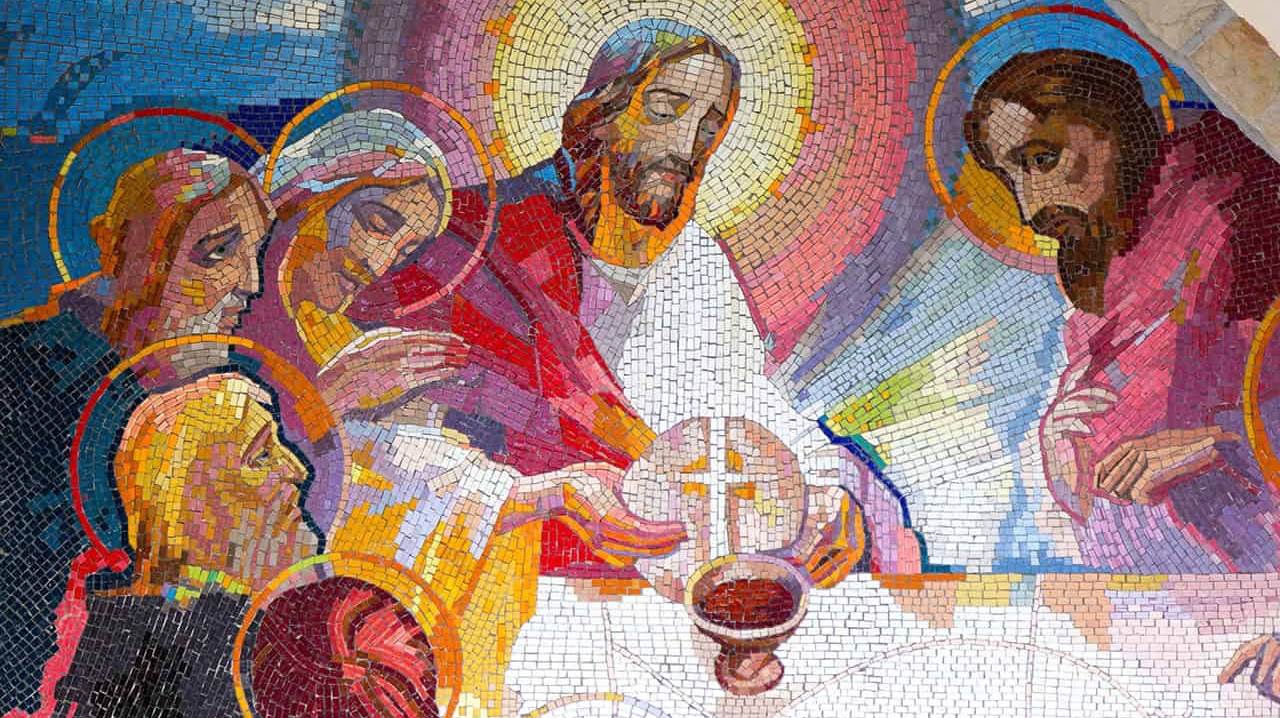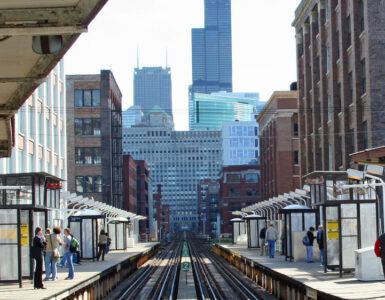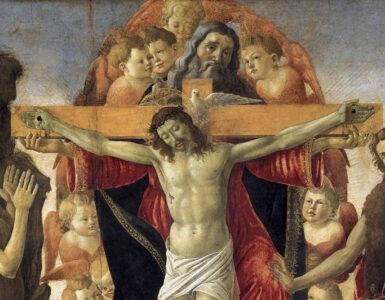Forty years ago a parish priest in Kansas, Father Stephen Scheier, was involved in a near-fatal car accident, and was rushed, unconscious, to a hospital for emergency treatment. Miraculously he survived, thanks in part to constant prayers from his parishioners and members of other local church congregations. After a long and painful recovery, he returned to his parish and resumed his duties. One day during Mass, after reading aloud this Gospel passage, he seemed to undergo a mystical experience, in which the printed letters of the Lectionary (the book of Scripture readings) seemed to enlarge and float off the page toward him. Following Mass, he suddenly remembered what had happened after his accident—a painful memory his mind had repressed. As he later said:
I was before the Throne of Judgment! Jesus Christ was the Judge. I didn’t see Him, I merely heard Him. What took place was instantaneous as far as “our time” is concerned. He went through my entire life and accused me of sins of commission and omission that were unconfessed and therefore unforgiven and unrepented. . . . To each offense, I said, “Yes, Lord!” I had planned excuses to say to the Lord . . . . Well, when you are talking to Truth personified, you don’t have any excuses; so all you say is “Yes, Lord!”
Father Scheier then heard the Lord’s terrible judgment: “Your sentence is Hell!” The priest was not surprised, for he knew Jesus was merely honoring the choice he himself had made by the way he lived his life. However, something unexpected happened next:
It was then, after [Jesus] had said this, that I heard a woman’s voice: “Son, would You spare his life and his immortal soul?” The Lord said, “Mother, he has been a priest twelve years for himself, and not for Me; let him reap the punishment he deserves!” She, in reply, said, ‘But Son, what if we give to him special graces and strengths and then see if he bears fruit? If not, Your will be done!” There was a very short pause, and then I heard Him say, “Mother, he’s yours!” (Your Soul in the Balance, pp. 95-96).
As you might expect, Father Scheier gratefully seized this great and totally undeserved opportunity by completely changing his priorities and lifestyle; he began taking his religious responsibilities much more seriously, and went about speaking at conferences and telling people of his experience until his death in 2020. It would be wrong to assume, of course, that every sinner deserving of Hell will receive a similar second chance; Father Scheier was granted an extraordinary grace—something no one can truly merit or count on. His description of judgment, however, speaks of a reality we will each one day experience: standing before Our Lord and being held accountable for every moral act of our lives, without any possibility of denial, blame-shifting, or excuse-making. Right now is the time to begin preparing for this all-important event—for if we truly live out our faith each day, loving God with all our hearts and loving our neighbor as ourselves, this decisive moment of divine judgment will be for us a blessing and an experience of mercy and grace.
At different times in the Church’s history people have been too afraid of God, seeing Him only as a stern and angry Judge, just looking for a reason to condemn sinners to Hell. Now, however, we seem to live in an age in which God is perceived as a kind and indulgent old grandfather, always happy to bless people on demand. Under this image, almost no one goes to Hell, because the Lord is so easy-going and doesn’t really care about our sins. Neither image is accurate or complete. The readings for the Third Sunday of Lent tell us that God can intervene powerfully when His people are oppressed, as happened when the Israelites (Exodus 17:3-7) were slaves in Egypt—but at the same time, as St. Paul (Romans 5:1-2, 5-8) reminds us, He holds His people to very high moral standards, sternly disciplining those who travel evil ways. Moreover, Jesus states in the Gospel of John (4:5-42) that sin can lead to unnecessary suffering and tragic consequences; instead of sympathizing with those who died sudden or violent deaths, Our Lord warned His hearers, “If you do not repent, you will all perish as they did!” These apparently harsh words are intended to make a powerful and vitally important point: our eternal destiny is determined by our actions in this life, and we cannot afford to take this truth lightly. The parable about the unproductive fig tree is a vivid warning that, while God gives us numerous chances to repent of our sins, sooner or later a day of reckoning will come.
Why does it seem the Lord is trying to scare us? For the simple reason that this is the only language some people seem to understand. God prefers that we obey and serve Him out of love—but if that isn’t happening, He will often do us the favor of letting us undergo unpleasant, painful, or even terrifying challenges, problems, or chastisements if they’re the only way He can get our attention, thus making possible our eternal salvation. Sometimes fear is the only thing that can overcome human stupidity and stubbornness, and a difficult and painful path to Heaven is infinitely better than an easy and pleasant road to Hell.
If we’re wise, we won’t let it come to that; we’ll live in a way that lets us rejoice in our life on earth even as we’re being prepared for Heaven. For instance, have you heard the advice to “offer it up” whenever you endure or suffer something you’d prefer to avoid? That’s a good thing to do—but we can also offer up all our blessings and happy moments, and if our automatic response is to praise and thank God whenever we receive such gifts, we’re giving Him reason to send us even more blessings. Also, when we encounter other people—especially those we don’t like—we can remind ourselves that one day they may be fellow citizens with us in Heaven, and this can prompt us to say a prayer on their behalf for this intention. As Father Scheier’s story suggests, it’s also very wise to ask the saints—above all, Our Lady—to help us on our journey through life and to intercede on our behalf. It’s also a good idea to remind ourselves that today we’re one day closer to death and judgment than we were yesterday. This doesn’t have to be a morbid thought; if we’re trying to live as we should, we can look forward to the day we meet Jesus face-to-face and hear Him invite us into His Kingdom. Life is meant to be too wonderful to be fearful or sad, and too important to be lazy or complacent. If we put God at the center of our hearts, we will one day meet Jesus not as our all-powerful Judge, but as our all-loving Savior.


